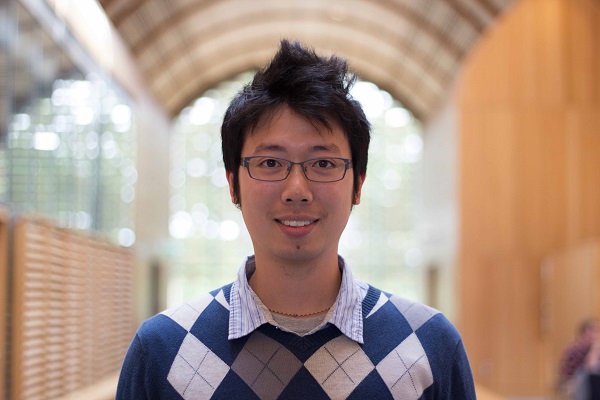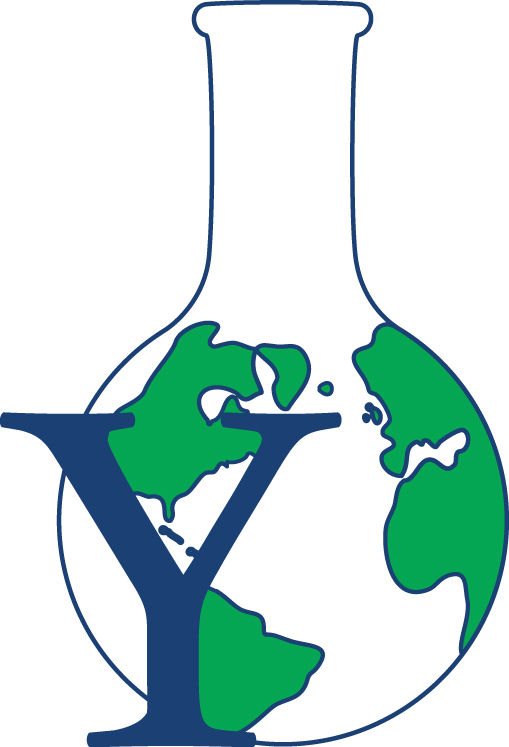
Jason Lam, a recent alumnus of the Center, has returned to work on electrochemistry with our excellent research team. He graciously agreed to be interviewed about his experiences at the Center.
Interviewer: Can you tell us a little bit about your past education and research?
Jason: I obtained my PhD from Michigan State University before coming to the Center. As a PhD student, I researched converting non-food grade biomass, such as switch grass, into hydrocarbon fuel through fast pyrolysis and electrochemistry. I was particularly interested in this research because of a great difference in energy content between biomass and fuel, such as gasoline. If we would like to pursue a sustainable fuel source using biomass, we must boost its energy content. That is how it all started.
Interviewer: What opportunities and initiatives did you take part in while you were at the Center?
Jason: When I joined the center as a postdoctoral fellow, I continued to use electrochemistry, but on a different topic. I explored how electrochemistry can transform industrial waste into useful materials. Specifically, I developed an energy efficient protocol to convert crude glycerol waste into lactic acid, which could be potentially be used for polylactic acid production.
Interviewer: What research/projects are you currently doing with the Center?
Jason: My research interests have expanded to pollution mitigation. I am also collaborating with other center affiliates to utilize soil metallic pollutants for catalyst preparation. I aim to use this catalyst for other bio-friendly plastic production. The project is part of a grand scheme to mitigate our dependence on petroleum resources and decrease non-degradable plastics in the environment.
Interviewer: How did your experiences at the Center prepare you for your next steps/where are you going from here?
Jason: My work at the Center led to Wesleyan University, where I am currently a visiting assistant professor and I design and teach their general and organic laboratory curriculum. This has been a very rewarding experience because it allows me to infuse different green chemistry concepts into the conventional chemistry curriculum - a revolution that our current chemistry education desperately needs. Starting in July 2019, I am taking a new position at City University of Hong Kong as an assistant professor. In addition to teaching courses I design myself, I will also continue on my research topics on renewable energy, waste valorization, and biodegradable material production.
Interviewer: What will you miss about the Center and/or New Haven?
Jason: Lots of things. About the center, I think people in general. I made lots of friends here and I have never been part of a place where almost everyone holds a different passport, and yet, work so well together. About New Haven, I am going to going to miss the food carts. During my stay as a postdoc, I get my lunch from the carts almost everyday and I got know many owners.
Interviewer: Do you have any memorable or funny stories about your time at the Center?
Jason: While I have stories on research breakthrough moments and wonderful teaching experience, my most memorable event remains to be my involvement in the academic outreach program, where I worked with the local gifted high school students. I remember I ended up spending more time talking to two of the students about the science unrelated to the program. We talked about nuclear energy when the program topic was on sunscreen. These outreaches remind me the upcoming generations are just as, if not more, enthusiastic about STEM than we are. I still have the program t-shirt with me.
Interviewer: Is there anything else you’d like people to know about the Center and/or your research?
Jason: In terms of work, I truly value the diversified expertise we have in the center, I would love to continue collaborating with anyone from the center while I am in Hong Kong. In terms of messages, I suppose I would like to share my view that nature grows and produces just enough to sustain its own needs. In other words, we must be proactive and be comprehensive to work with nature for our sustainable goals. This is why green chemistry is important, not just to our research, but also to the public where everyone can act together to make a real impact.
